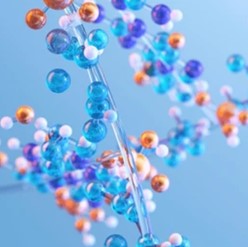Congenital Sucrase-Isomaltase Deficiency (CSID)
- Home
- Solutions
- By Diseases
- Intestinal Diseases
- Congenital Sucrase-Isomaltase Deficiency (CSID)
Congenital sucrase-isomaltase deficiency (CSID) occurs when sucrase-isomaltase, an enzyme that metabolizes sucrose and is secreted by the brush border of the small intestine, is deficient. Like lactase deficiency, CSID leads to some degree of maldigestion syndromes. Protheragen is dedicated to research services, providing a comprehensive one-stop solution to develop therapies for CSID. We design our services to cater to various stages from drug discovery to in vitro and in vivo studies.
Congenital sucrase-isomaltase deficiency (CSID) is a rare disorder with an autosomal recessive inheritance pattern caused by a deficiency of the sucrase-isomaltase enzyme complex. CSID can severely affect one's health as CSID can ultimately lead to carbohydrate malabsorption. It can manifest as severe diarrhea, deep abdominal cramps, gas, and cramps. Some estimates suggest the prevalence of CSID to be between 0.05% and 0.2% in North America and Europe.
 Fig.1 Location of genetic variants associated with CSID. (Senftleber, N. K., et al., 2023)
Fig.1 Location of genetic variants associated with CSID. (Senftleber, N. K., et al., 2023)The gene that codes for the sucrase-isomaltase enzyme is found on chromosome 3 and has several infrequent pathologic mutations in its functional domains. These mutations, which result in a loss of function in the sucrase-isomaltase enzyme, lead to the body's inability to metabolize sucrose and starch. It is hypothesized that these carbohydrates are present throughout the gastrointestinal tract, where they raise the osmotic pressure and are consumed by the bacteria within the intestines instead of the body which eventually results in CSID.
 Fig.2 Overview of sucrase-isomaltase function. (Senftleber, N. K., et al., 2023)
Fig.2 Overview of sucrase-isomaltase function. (Senftleber, N. K., et al., 2023)
| Drug Names | Mechanism of Action | Targets | Research Phase |
| Sacrosidase | A yeast-derived enzyme that facilitates sucrose digestion. | Sucrase | Approved |
| Saccharomyces cerevisiae containing probiotics | Has inherent activities of sucrase. | Sucrase | Preclinical |
| Liquid yeast sucrase | Help individuals with CSID undergo efficient digestive metabolism of sucrose by giving them extra sucrase. | Sucrase | Preclinical |
Disclaimer: Protheragen focuses on providing preclinical research services. This table is for information exchange purposes only. This table is not a treatment plan recommendation. For guidance on treatment options, please visit a regular hospital.
Our team consists of highly skilled researchers and scientists in genetics, molecular biology, pharmacology, and drug development guaranteeing premium quality service and outcomes. Our services include tailoring to specific client requirements, as well as providing fully integrated services for CSID therapy development that encompass diagnostic, therapeutic, and disease model development services.

Animal models allow for the understanding of the pathophysiology of the CSID condition which in turn helps to come up with innovative and effective therapy options for this particular genetic disease. Our company specializes in and provides animal models with symptoms of CSID for preclinical research purposes toward developing effective therapies.
One such animal model used for the CSID is the sucrase-isomaltase (SI) gene knockout mouse which is created by genetically modifying mice to lack functional sucrase-isomaltase enzyme activity.

From pharmacokinetic studies to biosafety evaluations, Protheragen's approach to preclinical research services is extensive and strives to determine the efficacy as well as safety of therapies. We aim to make a positive difference in the lives of people afflicted with CSID with innovation, collaboration, and expertise at the center of everything we do. If you would like to learn more about our comprehensive approach to CSID therapy development, please do not hesitate to contact us.
References
All of our services and products are intended for preclinical research use only and cannot be used to diagnose, treat or manage patients.